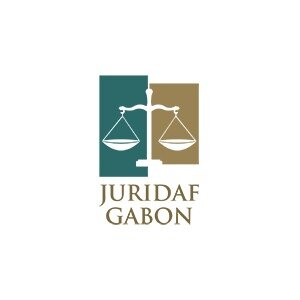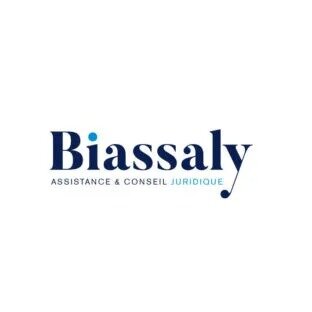Best Water Law Lawyers in Libreville
Share your needs with us, get contacted by law firms.
Free. Takes 2 min.
List of the best lawyers in Libreville, Gabon
About Water Law in Libreville, Gabon
Water Law in Libreville, Gabon refers to the legal framework that governs the ownership, control, usage, distribution, and protection of water resources within the city and its surroundings. This area of law includes regulations on access to drinking water, management of rivers and lakes, protection against pollution, rights of water usage for agriculture and industry, and the roles of public and private entities in water supply. Water Law is particularly important in Gabon due to the country's abundant natural water resources and the need to balance economic development with environmental conservation. The legal system aims to ensure equitable access, promote sustainable usage, and resolve conflicts that may arise from water resource management.
Why You May Need a Lawyer
There are several situations in which individuals, businesses, or communities may require legal assistance relating to Water Law in Libreville, Gabon:
- Disputes over water rights or access to public water sources
- Issues arising from pollution of rivers, lakes, or groundwater
- Complications with water supply contracts or service agreements
- Seeking permits or authorizations for extracting or utilizing water for industrial or agricultural purposes
- Land development projects that affect water courses or wetlands
- Government enforcement actions related to water regulation compliance
- Community conflicts regarding equitable water distribution
- Legal actions regarding water tariffs and infrastructure
- Involvement in international or cross-border water resource issues
- Conservancy and environmental protection efforts regarding water sources
A lawyer specialized in Water Law can help you navigate regulatory processes, represent you in disputes, and ensure that your rights and responsibilities under the law are protected.
Local Laws Overview
Water Law in Libreville is shaped by Gabon’s national legal framework, municipal regulations, and international commitments. Key aspects include:
- Ownership and Access: All water resources are considered property of the State, but access and usage rights can be granted to individuals, communities, or entities subject to regulation.
- Licensing and Permitting: Anyone desiring to extract, use, or modify natural water flows for non-domestic purposes must obtain the relevant permits from local authorities or the relevant ministries.
- Water Quality Regulations: There are strong controls on pollution, with penalties for contaminating drinking water sources or rivers. Environmental impact assessments are required for projects with significant water usage or influence on water bodies.
- Tariffs and Charges: Water supply services, particularly in urban areas like Libreville, are often managed by state-related entities, and tariffs are set under government supervision, aiming to ensure community affordability and sustainability.
- Dispute Resolution: In case of conflicts, specialized administrative and judicial processes are available to address grievances between private parties, local authorities, or the water utility companies.
- Community Rights: Customary and local community practices are recognized in some contexts, particularly concerning rural or traditional water usage arrangements.
Understanding the implications of these laws is essential for anyone involved with water access, projects, or disputes in Libreville.
Frequently Asked Questions
What are my rights to access public water in Libreville?
Citizens have the right to access public water resources for household needs, but usage for commercial, agricultural, or industrial purposes is regulated and may require permits.
Who is responsible for providing and maintaining water supply in Libreville?
Water supply is managed by the government through public utilities and, in some cases, private operators under state supervision. The Ministry of Water Resources and Energy has primary responsibility for oversight.
How can I obtain a permit to use river or groundwater for my business?
You must apply to the competent authority - typically the local municipality or the relevant ministry - providing details of your intended use, environmental impact considerations, and technical documentation.
What happens if my neighbor contaminates a water source I use?
Contaminating water sources is a violation of the law, and affected parties can file complaints with local authorities or initiate legal proceedings. Authorities may impose fines or require remediation.
How are water tariffs in Libreville set?
Water tariffs are regulated by the government to balance affordability for residents and sustainability for service providers. Increases or changes must go through an official approval process.
Can communities manage water resources independently?
Yes, in some rural or peri-urban areas, local communities or cooperatives may be granted rights to manage their water resources under government oversight, following customary or community-based management practices.
What legal protections exist for preserving wetlands and aquatic environments?
There are national and municipal environmental regulations that protect wetlands, rivers, and lakes from degradation, with penalties for unauthorized alteration or pollution, and requirements for environmental impact assessments.
Is rainwater harvesting legal in Libreville?
Rainwater harvesting for personal use is generally allowed but must not interfere with public infrastructure or create health hazards. Large scale or commercial harvesting may require authorization.
Do international treaties affect water management in Libreville?
Gabon is party to several international agreements on water resources and environmental protection, which influence national laws and local government practices regarding shared rivers and environmental standards.
How do I resolve a dispute with the water utility company?
Consumers can first attempt to resolve disputes with the utility through their internal grievance processes. If unresolved, complaints can be escalated to regulatory authorities or taken to court for legal adjudication.
Additional Resources
Individuals and businesses seeking further information or assistance regarding Water Law in Libreville, Gabon can consult the following resources:
- Ministry of Water Resources and Energy - Responsible for policymaking, regulation, and oversight of water resources and supply.
- Agence Nationale des Parcs Nationaux (ANPN) - Manages protected areas and aquatic ecosystems in partnership with other agencies.
- Libreville Municipality - Handles local water regulations, permits, and community water issues.
- Local Environmental Protection NGOs - Offer advocacy, guidance, and often have resources on community water projects.
- Court System - Administrative and civil courts handle legal proceedings related to water rights, disputes, and enforcement.
- Professional Legal Associations - Provide referrals to qualified Water Law specialists and resources for legal education.
Next Steps
If you believe you require legal advice or assistance relating to Water Law in Libreville, Gabon, consider taking these steps:
- Define your issue clearly - gather any relevant documentation or correspondence regarding your water-related concern.
- Contact the relevant local authority or ministry for guidance on regulatory procedures or permits.
- Consult a lawyer who specializes in Water Law - they can help explain your rights and responsibilities under the law, represent you in disputes, or assist with applications and compliance.
- Participate in any offered mediation or community-based dispute resolution before resorting to formal legal action, where appropriate.
- Utilize available government and NGO resources for additional support, especially if your concern relates to communal or environmental water issues.
Acting early and seeking professional legal advice can help you navigate the complexities of Water Law and achieve a fair outcome for your case.
Lawzana helps you find the best lawyers and law firms in Libreville through a curated and pre-screened list of qualified legal professionals. Our platform offers rankings and detailed profiles of attorneys and law firms, allowing you to compare based on practice areas, including Water Law, experience, and client feedback.
Each profile includes a description of the firm's areas of practice, client reviews, team members and partners, year of establishment, spoken languages, office locations, contact information, social media presence, and any published articles or resources. Most firms on our platform speak English and are experienced in both local and international legal matters.
Get a quote from top-rated law firms in Libreville, Gabon — quickly, securely, and without unnecessary hassle.
Disclaimer:
The information provided on this page is for general informational purposes only and does not constitute legal advice. While we strive to ensure the accuracy and relevance of the content, legal information may change over time, and interpretations of the law can vary. You should always consult with a qualified legal professional for advice specific to your situation.
We disclaim all liability for actions taken or not taken based on the content of this page. If you believe any information is incorrect or outdated, please contact us, and we will review and update it where appropriate.










